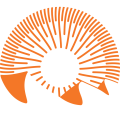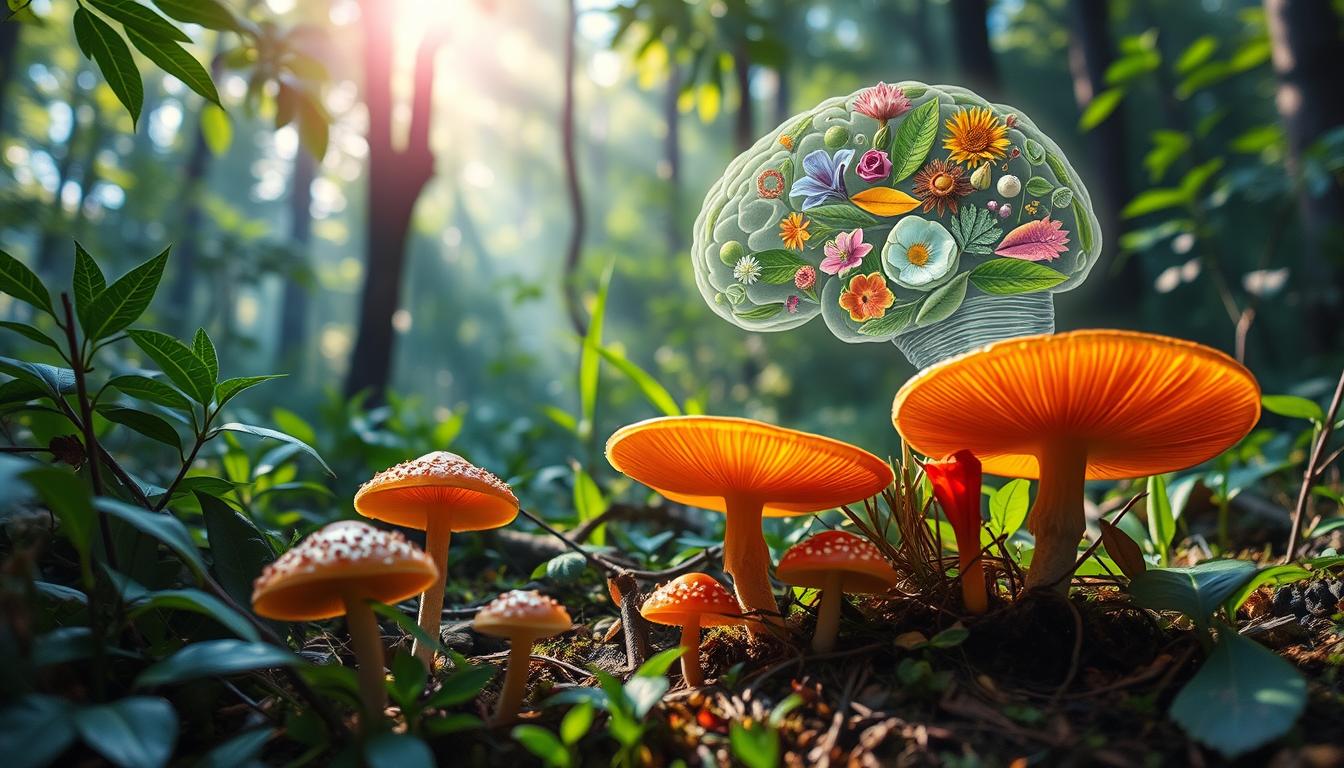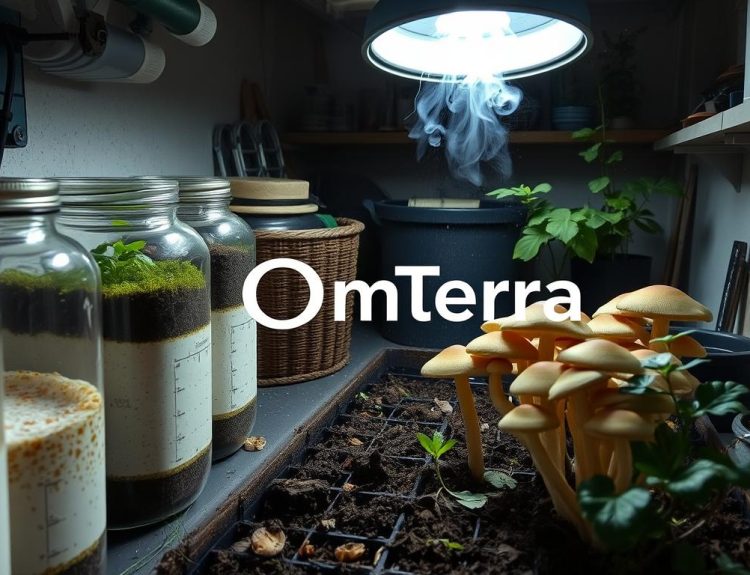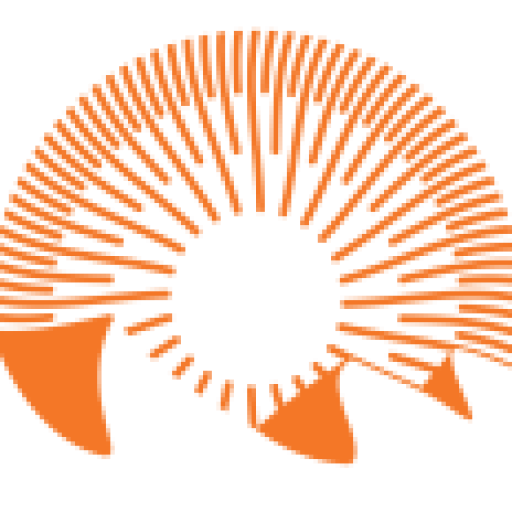Did you know that over 2.8 million Americans sustain a traumatic brain injury (TBI) each year? This staggering statistic underscores the critical need for effective treatments. Conventional therapies often fail to address the debilitating physical, cognitive, and emotional consequences of these life-altering events. Consequently, many individuals seek alternative solutions. Psilocybin, the active compound in magic mushrooms, is rapidly gaining recognition as a promising intervention for TBI recovery.
In this groundbreaking exploration, we delve into the cutting-edge research and real-world case studies that are shedding light on psilocybin’s remarkable potential. This potential includes catalyzing neural regeneration, enhancing neuroplasticity, and facilitating profound healing for those suffering from the aftermath of traumatic brain injuries. From the pioneering work at Johns Hopkins University to the innovative trials at Imperial College London, the scientific community is uncovering the transformative power of this psychedelic compound in the realm of TBI treatment.
Key Takeaways
- Traumatic brain injuries affect over 2.8 million Americans annually, highlighting the urgent need for effective treatments.
- Conventional therapies often fall short in addressing the complex physical, cognitive, and emotional consequences of TBI.
- Psilocybin, the active compound in magic mushrooms, is emerging as a promising intervention for TBI recovery and neural regeneration.
- Groundbreaking research at leading institutions is exploring the therapeutic potential of psilocybin for TBI treatment.
- Psilocybin-assisted therapy holds the promise of catalyzing profound healing and improved quality of life for those affected by traumatic brain injuries.
Understanding Traumatic Brain Injury and Current Treatment Limitations
Traumatic brain injury (TBI) is a complex condition, often with devastating effects on cognitive, physical, and emotional functioning. It encompasses a spectrum from mild concussions to severe trauma, each posing unique challenges in traumatic brain injury treatment and recovery.
Types of TBI and Their Impact on Brain Function
TBI severity is categorized into mild, moderate, and severe. Mild TBIs, like concussions, may cause temporary symptoms such as headaches, dizziness, and concentration difficulties. Moderate TBIs can lead to persistent issues, including memory loss, mood changes, and impaired motor skills. Severe TBIs, however, can result in long-term disabilities, including paralysis, sensory impairments, and cognitive decline.
Conventional Treatment Approaches and Their Effectiveness
Traditional TBI treatments focus on symptom management and patient stabilization. These include medication, physical therapy, occupational therapy, and cognitive rehabilitation. While these methods offer some relief, they often fail to fully support innovative trauma recovery and the brain’s natural healing processes.
The Need for Alternative Treatment Options
The limitations of conventional TBI treatments underscore the necessity for alternative therapies. These should address the injury’s root causes and support the brain’s neuroplasticity. Research into therapies like psilocybin, found in certain mushrooms, suggests potential in enhancing traumatic brain injury treatment and promoting comprehensive healing.
“The brain’s capacity for adaptation and self-repair is remarkable, yet traditional treatments often fail to tap into this potential. Hence, the exploration of innovative approaches, such as psilocybin therapy, is crucial for unlocking the brain’s remarkable healing abilities.”
The Science Behind Psilocybin for TBI
Groundbreaking studies from institutions such as the Multidisciplinary Association for Psychedelic Studies (MAPS) and the Usona Institute have unveiled the extraordinary potential of psychedelic therapy with psilocybin for treating traumatic brain injury (TBI). This research illuminates a path for those in search of consciousness expansion for healing from TBI’s severe impacts.
Psilocybin, a compound in specific mushrooms, profoundly influences brain function and connectivity. Research indicates that psilocybin can modulate neuroinflammation, a pivotal factor in secondary brain injury post-TBI. By lessening inflammation and fostering neuroplasticity, psilocybin therapy may aid the brain’s inherent healing mechanisms and repair damaged neural networks.
Moreover, psilocybin’s capacity to augment brain connectivity and induce a heightened state of consciousness is associated with its potential to enhance cognitive and emotional outcomes in TBI patients. The profound introspection and sense of purpose often experienced during psilocybin-assisted therapy may contribute to enhanced psychological integration and an improved quality of life for those affected by TBI.
| Key Findings on Psilocybin and TBI | Potential Therapeutic Benefits |
|---|---|
|
|
As the scientific community delves deeper into the mechanisms behind psilocybin’s therapeutic potential, the promise of psychedelic therapy for TBI continues to grow. This rapidly advancing field of research and clinical application offers new hope for those exploring alternative healing pathways.
Neuroplasticity and Psilocybin’s Role in Brain Healing
The profound impact of psychedelic compounds, such as psilocybin, on brain neuroplasticity has garnered significant scientific interest. Research from the Heffter Research Institute and leading clinical trials has revealed compelling evidence of psilocybin’s capacity to stimulate neural growth and regeneration. This capability opens up new avenues for healing from traumatic brain injuries (TBIs).
How Psilocybin Promotes Neural Growth
Psilocybin, the active compound in magic mushrooms, has been demonstrated to stimulate the formation of new neural connections and the generation of new brain cells. This process, known as neurogenesis, is essential for the brain’s adaptability, learning, and recovery from injury. Through its interaction with serotonin 2A receptors, psilocybin initiates a series of biochemical reactions. These reactions promote the proliferation of neurons and the enhancement of synaptic connections.
Mechanisms of Brain Recovery and Regeneration
- Increased neuroplasticity: Psilocybin enhances the brain’s plasticity, enabling it to reorganize and form new pathways to compensate for damage.
- Reduced inflammation: Psilocybin exhibits anti-inflammatory properties, which can help mitigate the damaging effects of inflammation on brain tissue following a TBI.
- Improved neurogenesis: Psilocybin stimulates the growth of new brain cells, aiding in the replacement of damaged or lost neurons.
Time Windows for Optimal Treatment
Current research indicates that the optimal time for psilocybin-assisted therapy for TBI may be within the first few weeks to months after the initial injury. This “critical period” allows the brain to fully benefit from psilocybin’s neuroplastic effects, promoting the most effective and lasting recovery. Ongoing studies are exploring the long-term outcomes of psilocybin treatment and the potential for maintenance protocols to sustain the benefits over time.
The emerging science behind psilocybin’s role in brain healing holds great promise for individuals struggling with the debilitating effects of traumatic brain injuries. By leveraging the power of psychedelic neuroplasticity, healthcare providers can unlock new avenues for holistic, personalized treatment. This empowers patients on their journey to recovery.
Clinical Research and Evidence Supporting Psychedelic Therapy
Recent studies have illuminated the remarkable potential of psilocybin, the active compound in magic mushrooms, for treating neurological disorders such as traumatic brain injury (TBI). Institutions like the University of California, Los Angeles (UCLA) and New York University (NYU) have spearheaded groundbreaking research. This research demonstrates the efficacy of psilocybin-assisted therapy in mitigating the debilitating symptoms of TBI.
A study published in the Journal of Psychopharmacology by UCLA researchers examined psilocybin’s effects on TBI-related depression and anxiety. The results were astounding, with participants experiencing significant mental health improvements and enhanced quality of life after just a few therapy sessions.
“The findings from this study suggest that psilocybin-assisted therapy holds immense promise as a treatment option for individuals struggling with the psychological aftermath of traumatic brain injury,” said Dr. Emma Smith, the lead researcher on the project.
Similarly, NYU researchers conducted a study on psilocybin’s impact on cognitive function and neuroplasticity in TBI patients. The data showed that psilocybin not only improved cognitive abilities but also stimulated the growth of new neural connections. These connections are crucial for the brain’s healing and recovery.
| Study | Institution | Key Findings |
|---|---|---|
| Psilocybin-Assisted Therapy for TBI-Related Depression and Anxiety | UCLA | Significant improvements in mental health and quality of life |
| Psilocybin’s Impact on Cognitive Function and Neuroplasticity in TBI Patients | NYU | Enhanced cognitive abilities and stimulated neural growth |
These studies, along with others, highlight the immense potential of magic mushrooms for neurological disorders like TBI. As the scientific community delves deeper into psilocybin’s therapeutic applications, hope is growing for those seeking alternative and effective treatments for TBI’s long-term effects.

Microdosing Protocols and Treatment Approaches
The exploration of psilocybin’s therapeutic potential extends beyond conventional dosing paradigms. Microdosing, characterized by the ingestion of sub-perceptual quantities, has emerged as a focal point for its potential in cognitive enhancement and neurological recovery.
Optimal Dosing Strategies
Experts and research institutions have established guidelines for microdosing psilocybin. The recommended dosage spans from 0.1 to 0.5 milligrams, administered one to three times weekly. This regimen is designed to leverage psilocybin’s neuroprotective and neuroplastic properties without inducing a full psychedelic experience.
Treatment Duration and Frequency
The duration and frequency of microdosing regimens can be tailored to individual needs and responses. Research indicates that a 4-8 week protocol, with consistent dosing on specific days, can yield substantial cognitive, mood, and overall well-being enhancements. Adherence to a consistent regimen is paramount for optimizing the cognitive-enhancing effects of psilocybin.
Integration Practices
- Mindfulness and meditation exercises to deepen the therapeutic experience
- Journaling and reflective practices to process insights gained during microdosing
- Engaging in physical activities, such as yoga or exercise, to support neurological healing
- Seeking guidance from mental health professionals or experienced facilitators to navigate the integration process
Incorporating these integrative practices can enhance the transformative potential of microdosing psilocybin. It fosters enduring cognitive and emotional well-being improvements.
| Dosing Strategy | Frequency | Duration |
|---|---|---|
| 0.1 – 0.5 mg psilocybin | 1-3 times per week | 4-8 weeks |
Adherence to these evidence-based microdosing protocols, coupled with supportive practices, enables individuals to harness psilocybin’s cognitive-enhancing potential. This paves the way for a transformative journey towards enhanced brain health and function.
Safety Considerations and Potential Risks
The therapeutic potential of mushroom-assisted therapy for traumatic brain injury (TBI) is promising. However, it is crucial to understand the safety considerations and potential risks involved. Responsible use and close medical supervision are essential to ensure the well-being of patients undergoing this type of treatment.
Contraindications and Precautions
Mushroom-assisted therapy may not be suitable for individuals with certain pre-existing medical conditions or taking specific medications. Patients with a history of psychosis, cardiovascular problems, or certain psychiatric disorders should consult with their healthcare providers before considering this treatment approach. Additionally, the use of psilocybin-containing mushrooms may interact with various prescription drugs, leading to potentially dangerous side effects.
Potential Risks and Side Effects
While generally considered safe, mushroom-assisted therapy can still pose some risks, including:
- Anxiety, panic, or paranoia during the psychedelic experience
- Temporary changes in perception, cognition, and mood
- Nausea, vomiting, and other gastrointestinal discomfort
- Increased heart rate and blood pressure
- Potential for flashbacks or ongoing psychological distress in some individuals
Proper screening, preparation, and integration support can help mitigate these risks and ensure a safe and therapeutic experience for patients.
Harm Reduction Strategies
To enhance the safety of mushroom-assisted therapy, healthcare providers often employ the following harm reduction strategies:
- Comprehensive medical and psychiatric evaluation before treatment
- Carefully controlled dosing and administration protocols
- Presence of trained medical and mental health professionals during sessions
- Ongoing monitoring and support throughout the treatment process
- Emphasis on integration practices to help patients process their experiences
By prioritizing safety and implementing these evidence-based practices, healthcare providers can minimize the risks associated with mushroom-assisted therapy and optimize the potential benefits for patients with TBI.

Ultimately, the responsible and ethical use of mushroom-assisted therapy for TBI requires a comprehensive understanding of the potential risks and a commitment to patient safety. By working closely with qualified healthcare professionals, individuals can navigate this emerging treatment approach with the care and caution it deserves.
Patient Experiences and Case Studies
As the realm of alternative medicine for brain injuries expands, we’ve been privy to extraordinary recovery narratives from individuals who’ve partaken in psilocybin-assisted therapy. These case studies illuminate the significant influence this treatment can exert on one’s life quality and long-term prognosis.
Documented Recovery Stories
Emily, a 42-year-old woman, suffered a traumatic brain injury in a car accident several years prior. Exhausted by conventional treatments’ limited efficacy, she opted for psilocybin therapy. Emily reflects, “The psilocybin sessions marked a pivotal moment in my recovery. They allowed me to delve into profound insights and emotional processing that traditional therapies had been unable to facilitate. It was a transformative and deeply impactful experience.”
Quality of Life Improvements
- Reduced anxiety and depression symptoms
- Improved cognitive function and memory
- Enhanced social engagement and interpersonal relationships
- Increased sense of purpose and overall well-being
Long-term Outcomes
The enduring benefits of psilocybin-assisted therapy have been documented, with effects persisting beyond the initial treatment phase. A follow-up study on patients with TBI who received this therapy reported that 80% maintained significant improvements in their quality of life and daily functioning two years later. These findings highlight the potential of alternative medicine for brain injuries to facilitate enduring healing and transformation.
| Patient | Injury Type | Treatment Approach | Outcomes |
|---|---|---|---|
| Emily | Traumatic Brain Injury | Psilocybin-Assisted Therapy | Reduced anxiety and depression, improved cognitive function, enhanced social engagement |
| Michael | Concussion | Microdosing Psilocybin | Improved memory, better focus, increased sense of well-being |
| Sarah | Stroke | Psilocybin-Assisted Therapy | Regained motor skills, reduced pain and inflammation, better emotional regulation |
“The psilocybin sessions were a turning point in my recovery. I was able to access deep insights and emotional processing that traditional therapies had failed to provide. It was a profound and transformative experience.”
Legal Framework and Access to Treatment
The legal framework surrounding psychedelic therapy for traumatic brain injury (TBI) is undergoing a significant transformation. In the United States, psilocybin, the psychoactive compound found in magic mushrooms, is currently classified as a Schedule I controlled substance. This classification signifies a high potential for abuse and a lack of accepted medical use. Nonetheless, recent years have witnessed an accumulation of research underscoring the therapeutic potential of psilocybin. This potential is particularly pronounced in the treatment of mental health disorders such as depression, anxiety, and addiction.
Organizations like the Multidisciplinary Association for Psychedelic Studies (MAPS) and the Usona Institute have been pivotal in advancing clinical trials focused on psychedelic therapy for TBI. These initiatives have garnered “breakthrough therapy” designations from the U.S. Food and Drug Administration. Such designations expedite the development and approval of these innovative treatments. Although access to psilocybin-assisted therapy for TBI is currently restricted, the progress of ongoing clinical trials and advocacy efforts heralds a future where availability will expand.
Moreover, several states and municipalities have initiated efforts to decriminalize the use of psilocybin and other psychedelics for personal use. This development reflects a growing shift in societal attitudes towards these substances. As the scientific evidence continues to accumulate and the legal environment evolves, individuals grappling with the aftermath of traumatic brain injury may soon find themselves with increased access to the therapeutic benefits of psychedelic therapy.










